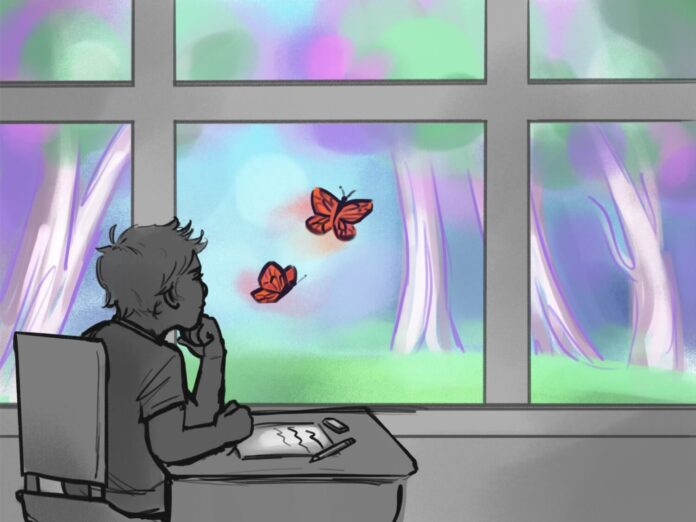Over 2000 years ago, Athens led the Greek city-states in a war against the Persian empire.
The Athenians had grown accustomed to dominance over the Hellenic world, but then a shift occurred towards mediocrity, accompanied by sociological changes within their society. These changes prompted Socrates to think deeply about the way Athenian society was organized, reevaluating the way his fellow Athenians related to each other and challenging the existing power structures.
Socrates’ student, Plato, who was dissatisfied with the Athenian government, established a school in a small grove just outside the city. Plato called his new school the “Akademos.” Plato’s Akademos school was located above and away from the chaos of city life. Looking at the city from afar, the students and teachers of Akademos were able to converse and think freely, free from the stressors and distractions of urban life. Akademos seemed to have meant the “silent district.”
Needless to say, Plato’s experiment was effective — it forever altered the course of human history.
Today, academia gets its practical and etymological roots from Plato, but unfortunately, we have lost some of the most important elements of Plato’s school. In urban environments, the air we breathe, the water we drink, and the food we eat are often polluted, leading city dwellers to feel unnecessarily anxious and to experience physiological compromise.
This notion seems to have been almost completely forgotten by modern doctors and sociologists. However, George Hunter’s “A Civic Biology,” which served as a high school biology textbook in the early 20th century, emphasizes the crucial importance of understanding the detrimental effects of modernity and urbanization on human health. Hunter dedicates the first page of his book to a comparison between “the unfavorable artificial environment of a crowded city with the more favorable environment of the country.”
When colleges are located in dense urban environments, it can be difficult to understand the consequences of urban life. We have largely forgotten that for most of human history (about 300,000 years), we did not live in modern cities, and that some of our new problems stem from our modern lifestyle.
This urban immersion can also lead academics to come to the incorrect conclusion that we have reached the end of science. Because we have a highly competitive academic system and reward redundant publication, the belief that one has “definitive knowledge” becomes appealing and infectious, as people rush to solve the “few remaining puzzles of science.”
This is not a new sentiment; in fact, in the late 19th century, physicists assumed that humans had essentially reached the limits of physics. History proved them wrong.
The most ludicrous example of this belief is Francis Fukuyama’s idea that liberalism is the final political system. He assumed that war would end after the Cold War because everyone would accept liberalism. History has proven this wrong as well.
The mystical belief in the “end of science” is built on layered historical misconceptions, made possible by a higher education system that does not encourage the challenging of accepted truths. The idea of the “end of science” is also favorable to the rich and powerful, echoing Fukuyama’s notion that having an impoverished underclass as an inescapable reality of human society clearly supports this. It makes sense that the oligarchs fight to maintain this mystique.
Prestigious universities are moving away from the pursuit of truth and are losing interest in creating positive change. They now seem more focused on maintaining and increasing their prestige, enriching themselves and enriching their students after graduation.
In the midst of our confusing, painful and vulgar world I see enormous potential for change. Revolutionaries throughout the world have recognized that education is a powerful instrument for positive change. As we move forward as a species, I hope that a new educational system, one that draws inspiration from Plato’s bold vision and is free from the plagues of modern life, can be imagined and actualized.
Hopefully, this new educational system will foster a more humane philosophy, which in turn will make the world a better place. As philosopher Robert Creegan said, we have two choices: “either we shall have more generous order, wisdom-imbued and boldly marshaling all the sciences for healing and for constructing, or we shall have planned disorder, cunningly rationalized and marshaling deteriorating science, to break personalities and to enslave, or to obliterate, thoughtful peoples.”
Contact Bennett Michaels at bmichaels@oxy.edu
![]()































